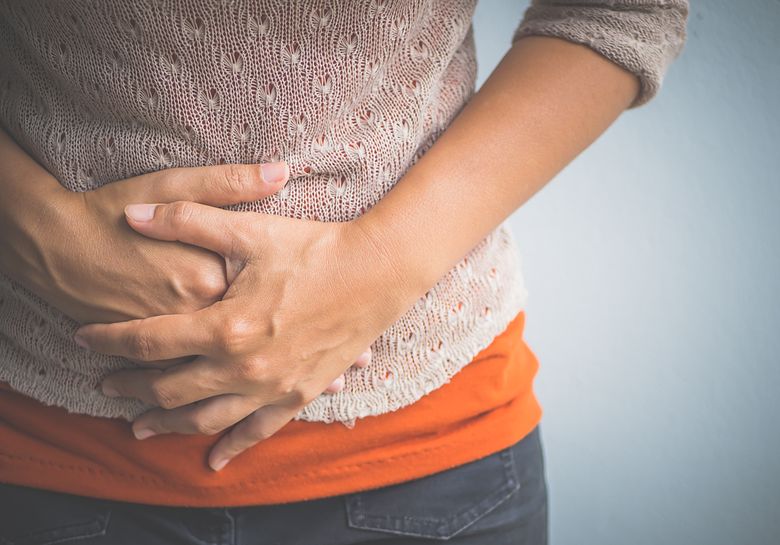Our Nutritionists Listens
Your symptoms are unique to you. Your nutritionist tracks your food with you and makes specific recommendations to help you feel better.
Whether you learn best with one-on-one support or in a small group setting, we have the perfect program for you.
We also offer a wide array of self-guided materials, empowering you with valuable resources to further support your transformation.
How Nutrition Coaching Works
Our programs are meticulously designed to help you achieve your health goals while enhancing your overall well-being.
We provide personalized counseling and unwavering guidance, ensuring that every step of your journey is met with success.
Take Our QuizOnPoint's team of highly skilled online dietitians and nutritionists are dedicated to empowering you with the knowledge and tools to cultivate sustainable habits that lead to long-lasting success on your health and wellness journey.
Let us help you build the perfect Crohn's Disease Diet

Although there is no "cure" for Crohn's Disease, combining traditional medicine with the recommendations from our Registered Dietitians for Crohn's Disease can help you re-establish a normal routine and feel healthier
Our Registered Dietitians help you determine:
A nutritionist for Crohn's Disease can be the perfect partner to your primary care doctor to help you manage your Crohn's Disease. Our evidence-based process can help you implement proven strategies to feel better and improve your health.
We work with your doctor to determine the best way to treat your Crohn's Disease Flares, including medical tests and potential surgery.
When Crohn’s is active, let the bowel rest and heal as much as possible. Therefore, we recommend a low fiber, low residue diet. We provide specific food recommendations below.
If improving your diet does not alleviate all symptoms, common medical procedures include: Bowel Resection, Ostomies, Strictureplasty and Fistula Removal.

Colitis, Ulcerative Colitis, and Crohn's are often used interchangeably - but in reality, they explain three different conditions. Colitis is the general inflammation of large intestine lining (colon). It is synonymous with Irritable Bowel Disease (IBD) and encompasses multiple conditions. Ulcerative Colitis: is a specific digestive issue, identified by ulcers on your large intestine. Crohn's is an inflammatory condition that can occur anywhere along the GI tract.
Our summary of the two conditions is below. You can also read a more detailed explanation about the differences between Colitis and Crohn's Disease here.
| Ulcerative Colitis | Crohn's Disease | |
|---|---|---|
|
What if Affects |
Ulcerative Colitis specifically affects your large intestine, also known as the large bowel or colon. The ulcers form on only the top layer of tissue in your colon |
Anywhere along your GI tract, although it is commonly found in the small intestine and large intestine. Crohn's impacts all tissue layers at its site Crohn's can also cause issues with your skin, eyes, and joints |
|
Symptoms |
|
|
|
Treatment |
|
|
|
Diagnosis: performed by a gastroenterologist |
|
|
Our summary of the two conditions is below. You can also read a more detailed explanation about the differences between Colitis and Crohn's Disease here.
If you have Crohn's Disease, very minor changes to what you eat can make a BIG difference in your symptoms. Consider keeping food logs or adjusting foods that trigger your symptoms. You may also want to work with your doctor or dietitian to work through an elimination diet. Generally, you should try to:
In terms of specific food recommendations, go with these:
| Food Type | Examples |
|---|---|
|
Lean Protein |
|
|
Low Fiber Fruits |
|
|
Veggies |
Veggies can be hit or miss, so be be very specific:
|
|
Foods with Probiotics |
|
During a flare up, you many find it more comfortable to eat bland, soft food, otherwise limiting spicy foods. During periods of remission, you should eat all of your usual items with the omission of known offenders.
Some experts believe that probiotics can help restore the “good” bacteria imbalance in microbiome, which can help to subdue the immune response in the gut and reduce Crohn’s Disease symptoms. These experts maintain that adding probiotics reduces intestinal inflammation, which alleviates frequent symptoms such as diarrhea and upset stomach.
However, although some scientists believe that probiotics can help, very little research has been done to establish a direct link between probiotic consumption and improved Crohn’s Disease symptoms. The research that does exist has only been conducted on a very small number of people. Consequently, it is hard to generalize these results to everyone who suffers from Crohn’s Disease. One of these small studies showed improvements in the barrier function of the intestine and an increase in anti-inflammatory compounds in the gastrointestinal tract. These findings led the researchers to conclude that probiotics are “promising” as a treatment for Crohn’s Disease.
Read our full discussion of the benefits of Probiotics for Crohn's Disease here.
Most importantly, we highlight that each person's food sensitivities and triggers are different
Below is a list of common trigger foods; keep in mind that they vary for each person
We encourage you to eat a medium/high fiber diet when you are not experiencing a flare up. A high fiber diet is almost always encouraged in all adults, part of maintaining a healthy gut as well
If you decide to increase your fiber intake, increase it gradually, even if you are not having GI or IBD issues presently
You may find a "Low Residue" approach helpful. We have seen it work well for some people
Increase or be aware of hydration and fluid intake. Try to drink at least 64 oz of water per day
Some studies show that a higher fiber diet can improve IBD conditions
Although Crohn’s Disease is known for causing digestive problems, it can also affect other areas of your body. Individuals with Crohn’s may experience skin complications, joint pain, and eye problems. About 10 percent of individuals with Crohn’s have problems with their eyes at some point.
Eye problems linked to Crohn's Disease include:
Different conditions require different treatments.
In general, treating Crohn’s disease and reducing inflammation will also alleviate eye problems. Additionally, avoiding Crohn’s flares also reduces the risk of developing eye problems in the future.
Extra-intestinal manifestations including rashes and skin irritation will get worse during a flare and resolve during periods of remission. These rashes oftentimes fluctuate in-line with the inflammation throughout your body.
Skin conditions associated with Crohn's Disease include:
No matter you skin condition’s cause, it is best to talk with your doctor about your skin concerns. He or she can help you identify the cause and develop a treatment plan.
If you are experiencing a skin condition associated with a Crohn’s Disease flare, the best way to manage your skin is to manage the flare. Reducing inflammation in your gastrointestinal tract will also reduce inflammation throughout the rest of your body, including your skin.
Crohn’s Disease pain originates from inflammation in the digestive tract and can spread systemically throughout your body.
Most people experience gastrointestinal pain in the stomach, abdomen, or anus. Additionally, some people may also experience pain in peripheral parts of the body such as their joints and eyes.
Each person perceives pain differently, and thus describes their pain in different ways. We list common pain descriptors below:
While not all people with Crohn’s Disease will experience pain in other areas, almost all people with Crohn’s Disease will experience GI pain at some point in their life… especially if the condition is not treated.
Read more about general body pain and Crohn's Disease in our full write up.
Yes! Anything from our member portal free of your trigger foods
A dietitian with an expertise in GI and digestive issues, such as OnPoint! In addition to a dietitian, always consult your primary care doctor. They can refer you to a local GI specialist if needed
If diagnosed, you may want to seek a specialist for your specific disease in your area
Whether you are in an active flare or remission, Crohn’s disease is not contagious and cannot be spread to others. To further understand why Crohn’s is not contagious, let’s look deeper into what causes Crohn’s disease.
Researchers currently believe that genetic factors may influence the onset of Crohn's Disease. Further, environmental factors such as stress also play a role in developing symptoms. There is a third theory that certain pathogens may be linked to Crohn's Disease.
The risk of developing Crohn’s increases if both parents have IBD. Research suggests that if one parent has IBD, their child has about an 8 percent risk of developing the disease during his or her lifetime. This risk increases to 35 percent if both parents have IBD. Research conducted on identical twins shows that if one twin has Crohn’s the other twin has a 50 percent chance of developing IBD as well.
Crohn’s Disease history in your family does not automatically mean you will develop Crohn’s at any point in your life. Rather, you are simply at a higher risk than someone without a genetic predisposition.
Researchers are currently working to identify genes that may be linked to Crohn’s Disease. At this point, more than 200 genes have been linked to IBD in some fashion. Some of the 200 genes are recessive genes, which have a lower likelihood of being passed on. Most of these mutations slightly shift the amount, timing, and location of genetic expression, which may alter the gene's function. These genes are often tied to the immune system, and increase the risk for developing Crohn’s.
Read our full discussion of Crohn's Disease and genetics.
Themost common diagnostic toolsused for Crohn’s disease areblood tests, stool studies, and colonoscopy. Your doctor will most likely perform multiple tests to confirm the diagnosis. For example, while blood tests do not definitively confirm Crohn’s Disease, they can indicate signs of anemia, which is a common condition for people with Crohn’s.
The colonoscopy is usually the method used to confirm Crohn’s. During a colonoscopy, your doctor will be able to view your entire colon using a thin, flexible tube with a camera attached. During this procedure, they can also take small samples of tissue (biopsy) to analyze for inflammatory cells.

Your symptoms are unique to you. Your nutritionist tracks your food with you and makes specific recommendations to help you feel better.

Based upon your daily routine, we will build a custom plan to help alleviate your GI and IBD issues.

Success does not happen overnight. If something isn't working quite right, we make changes right away.
“My team and I would be honored to be part of your health journey! Our priority is your health and happiness; no goal is too big or too small. We look forward to working with you soon!”
